5 HTC Sense features that should be in stock Android
Making Sense of Android
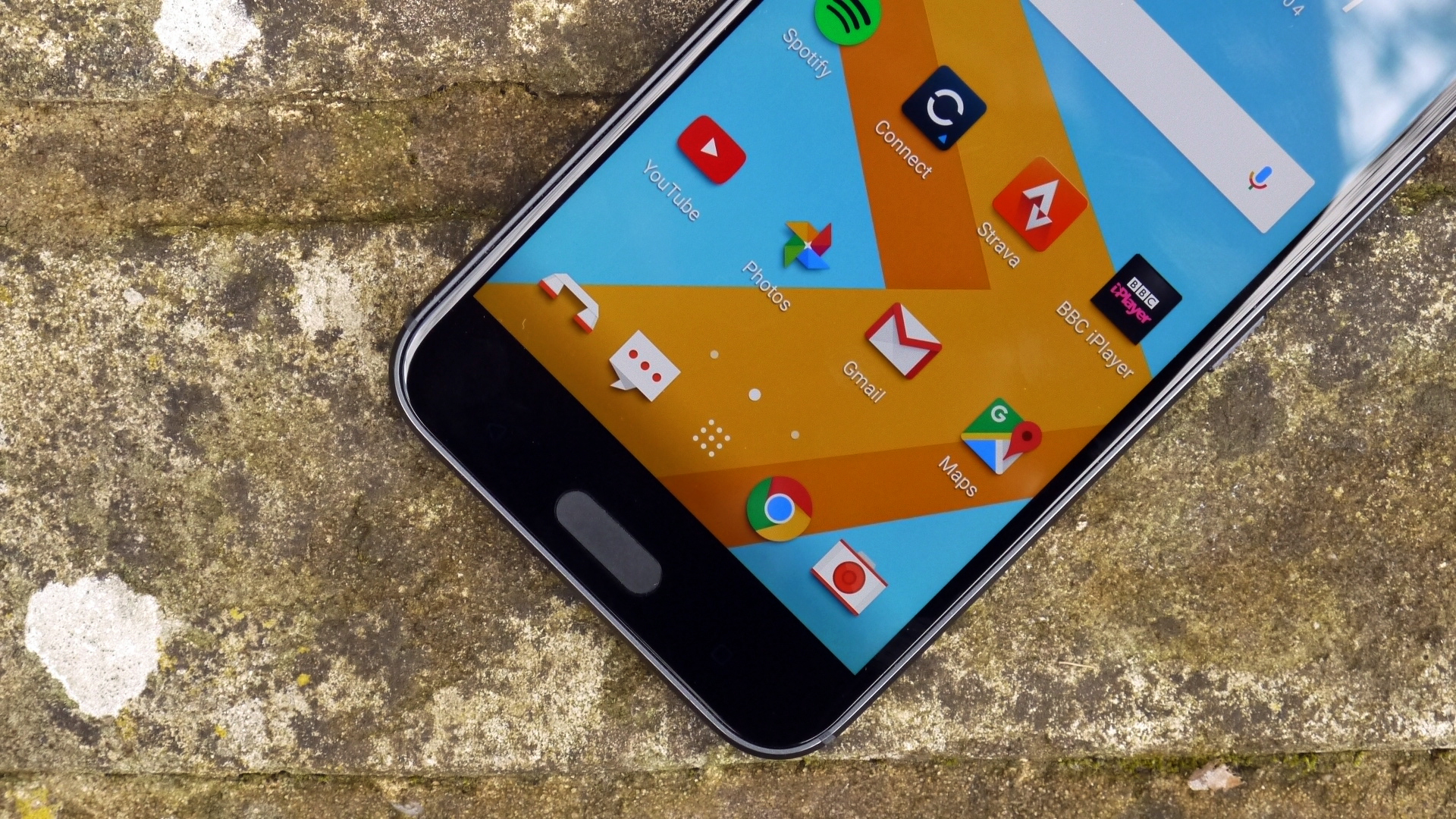
We're big fans of stock Android. There was a time when manufacturer overlays added much needed features, but with Android Marshmallow - and now Android Nougat - the OS has reached the point where it's slicker, more intuitive and better looking than any skin.
Having said that, right from the very beginning HTC Sense was always one of the best alternatives to stock, with a beautiful, refined look and minimal bloat - we remember the stunning performance of the HTC Hero with the 'new' way of dealing with Android really impressing.
These days we'd be inclined to give stock Android the edge in terms of sheer ease of use, but there are things that Sense has that we really wish Google would borrow. The following five things in particular would make for great additions to the stock Nexus interface - so come on Google, let's see them in Android O, yeah?
1. BlinkFeed

BlinkFeed is arguably the standout feature of HTC Sense. It takes up a whole home screen, but it fills it with the latest updates from news and entertainment sources of your choice, alongside your social media accounts. With BlinkFeed you can see at a glance everything that's going on in your world - and beyond.
It's beautifully presented and a great way to kill a few minutes. With over ten thousand possible sources it's easy to fill it up with stuff that you care about and being on a home screen it's always just a swipe away, which somehow seems a lot easier than launching an app.
It's also not forced on you, as HTC thankfully lets you disable it if you'd prefer. But as an option it's great and it's an option we'd love to see on stock Android - it's a good alternative to Apple's News too.
2. Theme Creator
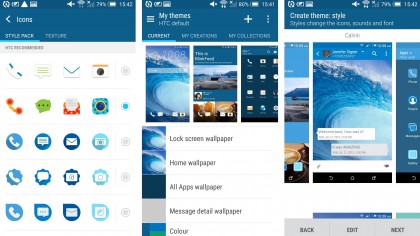
Stock Android looks great, but without heading into Google Play to grab icon packs or scouring the web for new wallpaper it's also not very visually customisable. So we'd love to see something like HTC's Theme Creator added.
Get daily insight, inspiration and deals in your inbox
Sign up for breaking news, reviews, opinion, top tech deals, and more.
The Theme Creator built into HTC Sense is a slick, feature-packed way to customise the look and feel of your device out of the box.
You can change the colour scheme, icons, sound effects and fonts of your phone, or pick a wallpaper and have the colours automatically match up with it. Or if you're feeling less creative you can choose from a selection of pre-created themes, all of which really shine and feel cohesive throughout your handset.
There are enough options to make the phone your own and being able to tweak everything from one place makes it fast and easy. Android is all about customisation, so making it easy to customise the look should be a no brainer and is something we hope Google adds to the stock OS down the line.
3. Sense Home
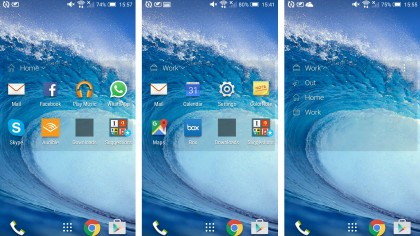
Sense Home aims to display the most relevant apps for the place you're currently at, by changing the contents of a widget based on whether you're at home, at work or elsewhere.
You can set your home and work locations, or leave the widget to work them out itself, and it will learn what apps you tend to use most at these places, then make sure they're front and centre for you when you need them.
So if you tend to use Gmail a lot at work you'll find that in the Sense Home widget while you're at work and it might be swapped for Spotify when you're out and Facebook when you get home. It's not perfect at predicting what you'll need, but the more you use it the more accurate it gets - and we think Google could really make this stunning if it got a massive engineering department working on it.
It's a great idea, as it means less time spent swiping around your phone and more time in the apps you want to use. We could see it fitting in well with stock Android (just as long as it remains optional).
4. Gestures
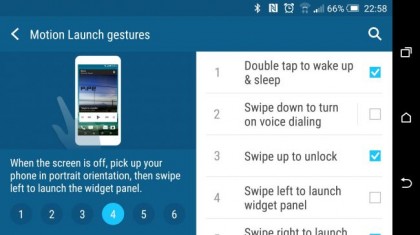
HTC isn't the only company to include gesture controls on its handsets, but it's something that stock Android doesn't offer and Sense does quite well.
There are motion gestures for one, which allow you to answer a call by placing the phone to your ear, or mute a call by flipping the phone face down.
But you can also wake up and unlock the handset without ever touching the power button with certain HTC phones, such as the HTC 10.
A double tap of the screen will wake it up, while a swipe up will bypass the lock screen entirely if you don't have any security enabled. There are also other shortcuts, such as jumping straight to BlinkFeed if you swipe in from the left.
All of these are varying degrees of useful, especially being able to wake up the phone without touching a button. It's a feature that's found on a range of other handsets from the likes of LG and Nokia too and it's about time it was baked right in to stock Android.
5. Power saving
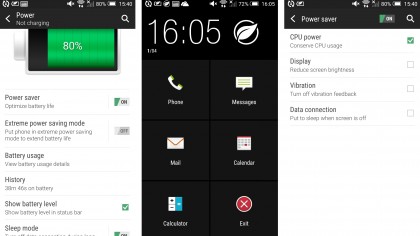
Android Nougat has some battery saving tools built in, from Doze, which automatically puts your phone to sleep when it's idle (and is now smarter at keeping specific apps in check when the phone's in your pocket), to battery saver, which limits vibration, location services and background data, as well as reducing your handset's performance.
But there are two ways in which HTC Sense does battery saving better. The first is that with its similar power saver mode it lets you pick which aspects you do and don't want to limit, while the Marshmallow battery saver gives you no options.
The second is Extreme Power Saving mode, which goes far beyond anything offered by stock Android.
It limits you to using basic apps and services like the phone, messages, email, calendar and, oddly, the calculator. Essentially it turns your smartphone into a very, very dumb one, but in the process it also eliminates many of the things that guzzle down juice for those times when you really can't afford a flat battery.
It's not something you'll use much, but it's great knowing it's there, as it gets rid of the battery anxiety you can suffer from on stock.
Samsung is actually probably doing this a touch better at the moment, as with the Galaxy Note 7 it's got a range of options for even the 'extreme' mode - but both brands are getting rather good at making sure you can keep your precious battery safe when the percentage levels get a bit dicey.
- It's not just Sense that's got something to offer: here are 5 Samsung TouchWiz features we want to see
James is a freelance phones, tablets and wearables writer and sub-editor at TechRadar. He has a love for everything ‘smart’, from watches to lights, and can often be found arguing with AI assistants or drowning in the latest apps. James also contributes to 3G.co.uk, 4G.co.uk and 5G.co.uk and has written for T3, Digital Camera World, Clarity Media and others, with work on the web, in print and on TV.